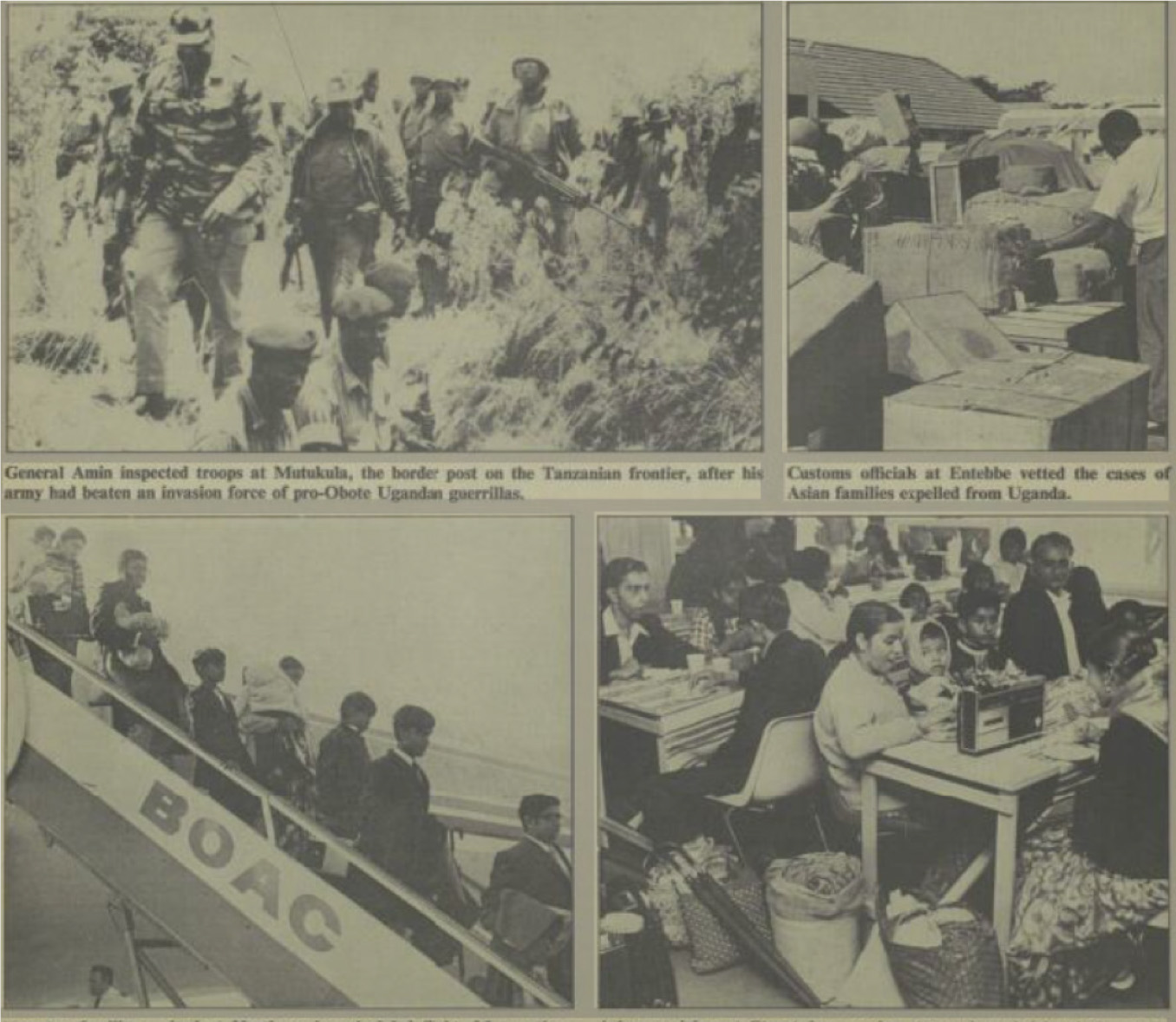TWICE
MIGRANTS
ਗਲ ਪਿਆ ਢੋਲ ਵਜਾਣਾ ਪੈਣਾਂ
Gal piaye thol vjana pehna
Sometimes you have to do some work even though it
is not your responsibility.
After partition, many people from the Pothohar region migrated to East Africa. This journey followed ancient and modern echoes: as well as more recent early twentieth century migrations of engineers, construction workers and indentured labourers working on the railways, there was a centuries-long history of traders travelling between the two regions. There had been a great deal of travel between East Africa and the Pothohar region, with people living abroad paying frequent visits to their home. After partition, they were unable to return.
Migrants fleeing partition could hope for a warm welcome in Uganda and Kenya, with families and businesses already established there to make settling easier. However, once they had arrived, the newly migrated South Asians found themselves caught between the struggling colonial British class and the rising nationalism of the Kenyan and Ugandan majority, which soon began to cause tension. As the British Empire started to disintegrate, Uganda and Kenya declared themselves independent in 1962 and 1963 respectively, but most South Asians living there wanted to keep their British passports to maintain their connection to Britain.
The following years were febrile, with the instigation of Kenyan ‘Africanisation’ policies rendering employment, housing, and trade options for South Asians increasingly limited. The increasing hostilities culminated in the Ugandan Idi Amin coup in 1971. The following year, all Asians were ordered to leave within 90 days, causing 27,000 Ugandan Asians to flee once again to the UK or further afield to Canada and the United States. There was a similar pattern in neighbouring countries: the 345,000 South Asians living in Kenya in 1968 had dwindled to just 65,000 by 1984. Having already migrated just a few years before, thousands of people were now having to pack up their lives and move once again. Because of this, these people became known as Twice Migrants.


“We were very fortunate that we missed out [on a lot of discrimination] … My parents were able to mix socially… Our house forever had poets, writers and authors coming over… To us it was a very natural thing because having lived in Africa as expatriates with other English people, we were very used to this”
shaminder puri
